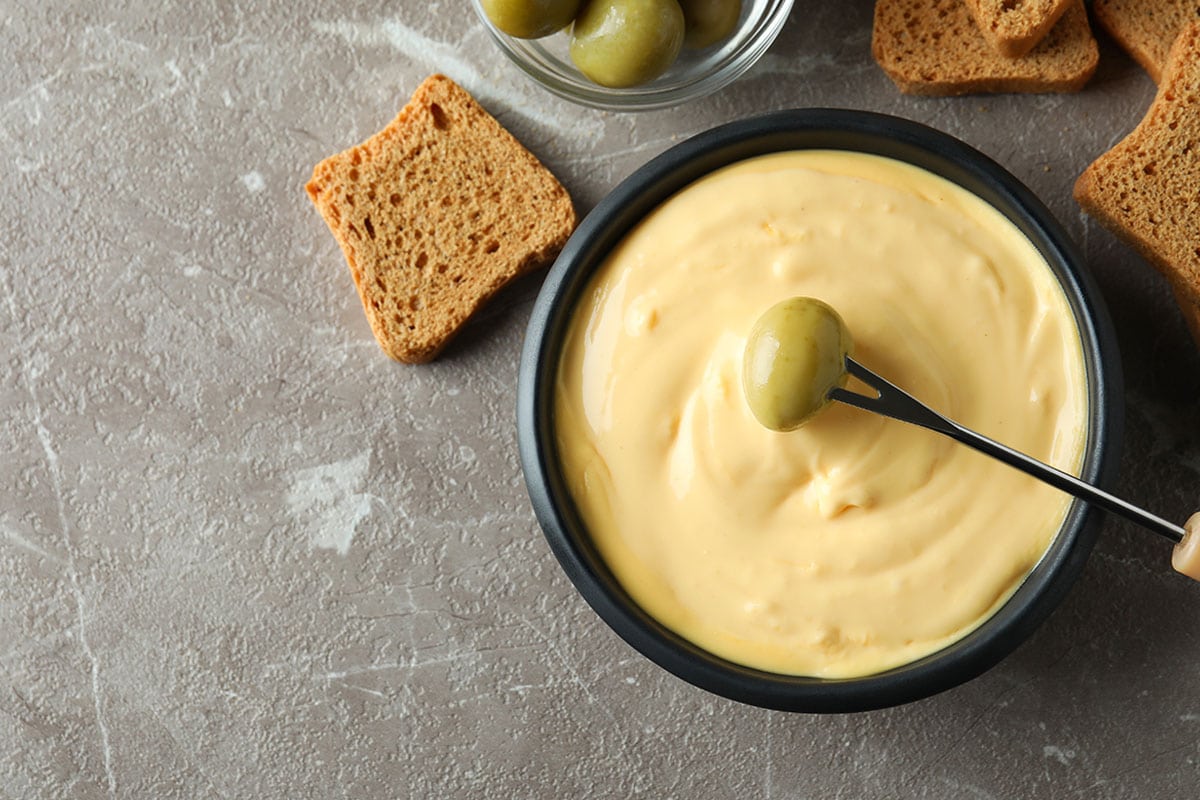

Articles
How To Store Cheese Sauce
Modified: February 23, 2024
Learn how to properly store cheese sauce to maintain its taste and texture. This article provides helpful tips and guidelines for preserving your favorite cheesy delight.
(Many of the links in this article redirect to a specific reviewed product. Your purchase of these products through affiliate links helps to generate commission for Storables.com, at no extra cost. Learn more)
Introduction
When it comes to enjoying creamy, cheesy goodness, few things compare to a delicious cheese sauce. Whether you’re topping off a plate of nachos, smothering your favorite pasta dish, or adding a savory twist to your vegetables, cheese sauce adds a flavorful punch to any meal. But what happens when you have leftover cheese sauce? Can you store it for later use?
Storing cheese sauce properly is important to maintain its taste and quality. When stored incorrectly, cheese sauce can develop an unpleasant texture, separate, or even spoil. In this article, we will guide you through the factors to consider before storing cheese sauce, best practices for storage, and tips for reheating and using stored cheese sauce.
Before we dive into the storing process, it’s important to consider a few factors. The type of cheese used, the ingredients in the sauce, and the storage conditions play a crucial role in determining the sauce’s shelf life and quality. Let’s explore these factors in more detail.
Key Takeaways:
- Properly storing cheese sauce involves considering factors like cheese type, using airtight containers, and refrigerating for short-term use or freezing for longer storage. Follow best practices to maintain flavor and quality.
- When reheating and using stored cheese sauce, thaw it slowly, reheat gently, and get creative with leftover sauce in various dishes. Implement helpful tips to ensure freshness and safety throughout storage.
Read more: How To Store Nacho Cheese Sauce
Factors to Consider before Storing Cheese Sauce
Before you proceed with storing your cheese sauce, there are a few important factors to consider:
1. Type of Cheese: Different types of cheese have different moisture levels and melting points. This can affect the stability of the sauce when stored. Soft cheeses like Brie or Camembert may not hold up well when stored for a long time, while harder cheeses like Cheddar or Gouda may maintain their quality for longer periods.
2. Ingredients in the Sauce: Take note of any additional ingredients in your cheese sauce. Some sauces may contain perishable ingredients such as milk, cream, or butter. These can impact the shelf life and safety of the sauce when stored.
3. Storage Container: The container you choose to store your cheese sauce in is crucial. Opt for an airtight container that will prevent air and moisture from entering, which can cause spoilage or affect the texture of the sauce. Glass or food-grade plastic containers with tight-fitting lids are ideal.
4. Storage Conditions: Cheese sauce should be stored in a cool and dark place. Exposure to heat and light can lead to bacterial growth and spoilage. Keep the sauce away from direct sunlight and avoid storing it near strong-smelling foods, as cheese sauces easily absorb odors.
5. Shelf Life: It is important to be aware of the general shelf life of cheese sauce. While the exact length of time may vary depending on the ingredients used, cheese sauce is generally safe to consume for 3 to 5 days when refrigerated. If you intend to store it for longer, freezing is a better option.
By considering these factors, you can ensure that your cheese sauce remains safe, flavorful, and enjoyable even after storage. In the next section, we will delve deeper into the best practices for storing cheese sauce.
Best Practices for Storing Cheese Sauce
To maximize the shelf life and quality of your cheese sauce, follow these best practices for storage:
1. Cool the Sauce: Before storing, allow the cheese sauce to cool completely. This helps prevent condensation inside the container, which can lead to spoilage. It is recommended to refrigerate or freeze the sauce within 2 hours of cooking.
2. Divide into Portions: If you have a large batch of cheese sauce, consider dividing it into smaller portions before storing. This allows for easier and more convenient thawing or reheating of the sauce later on. Smaller portions also reduce the risk of waste if you only need a small amount for future use.
3. Airtight Containers: Transfer the cheese sauce to airtight containers. Ensure that the lids are securely sealed to prevent air and moisture from entering, which can cause spoilage. Label the containers with the date of storage for easy reference.
4. Refrigerator Storage: If you plan to use the cheese sauce within 3 to 5 days, refrigeration is your best bet. Place the containers in the refrigerator’s main compartment and not in the door, as the temperature fluctuates more in the door. Proper refrigeration helps maintain the quality and safety of the sauce for a short duration.
5. Freezer Storage: If you want to store cheese sauce for a longer period, freezing is the preferred method. Ensure that the containers are freezer-safe and leave some headspace for expansion. For optimal results, transfer the cooled sauce into a freezer bag, removing as much air as possible before sealing. Properly stored, cheese sauce can typically be kept in the freezer for up to 3 months.
6. Thawing Cheese Sauce: To thaw frozen cheese sauce, transfer it to the refrigerator and let it thaw slowly overnight. Avoid thawing at room temperature, as this can promote bacterial growth. Once thawed, use the sauce within 24 hours and do not refreeze it.
7. Storage Duration: While cheese sauce can be stored, it’s important to note that the flavor and texture may change over time. It is recommended to consume refrigerated sauce within 3 to 5 days and frozen sauce within 2 to 3 months for the best results.
By following these best practices, you can ensure that your cheese sauce remains safe, flavorful, and of high quality when stored. In the next section, we will explore the proper methods for refrigerating and freezing cheese sauce.
Refrigerator Storage
Refrigerating cheese sauce is a convenient option if you plan to use it within a few days. Follow these steps for proper refrigerator storage:
1. Allow Sauce to Cool: Let the cheese sauce cool to room temperature before placing it in the refrigerator. This helps prevent condensation and maintains the quality of the sauce.
2. Transfer to Airtight Container: Transfer the cooled cheese sauce into airtight containers. It is recommended to use smaller containers for easier storage and portioning. Ensure that the lids are tightly sealed to prevent air and moisture from entering.
3. Store in the Main Compartment: Place the containers of cheese sauce in the main compartment of the refrigerator. Avoid storing them in the refrigerator door as the temperature fluctuations in this area can impact the sauce’s quality.
4. Keep Away from Strong Odors: Cheese sauces easily absorb odors, so it’s important to keep them away from strong-smelling foods like onions, garlic, or seafood. This helps maintain the sauce’s flavor and aroma.
5. Check for Spoilage: During the storage period, it’s important to regularly check the cheese sauce for any signs of spoilage. If you notice any changes in smell, color, or texture, discard the sauce immediately.
6. Use Within 3 to 5 Days: Refrigerated cheese sauce should be consumed within 3 to 5 days for optimal freshness and flavor. After this time, the sauce may start to lose its quality and could pose a risk of foodborne illnesses.
By following these guidelines, you can safely store cheese sauce in the refrigerator and enjoy it for a few days. However, if you’re looking to store the sauce for a longer period, freezing is the better option. We’ll explore freezer storage in the next section.
Store cheese sauce in an airtight container in the refrigerator for up to 5 days. To reheat, gently warm it on the stovetop or in the microwave, stirring frequently to prevent separation.
Freezer Storage
If you have a large batch of cheese sauce or want to store it for an extended period, freezing is the ideal method. Proper freezer storage will help maintain the quality and taste. Here’s how to freeze cheese sauce:
1. Cool the Sauce: Allow the cheese sauce to cool completely before freezing. This prevents condensation and ice crystals from forming, which can affect the texture and taste of the sauce.
2. Portion the Sauce: Divide the cheese sauce into smaller portions based on your future needs. Portioning makes it easier to thaw and use only the desired amount without having to thaw the entire batch.
3. Freezer-Safe Containers: Transfer the cooled sauce into freezer-safe containers or resealable freezer bags. Make sure to leave some headspace (about an inch) to allow for expansion as the sauce freezes.
4. Remove Air and Seal: For freezer bags, squeeze out as much air as possible before sealing. This reduces the risk of freezer burn and helps maintain the sauce’s flavor.
5. Label and Date: Label each container or bag with the name of the sauce and the date of freezing. This will help you keep track of the storage time and ensure you use the oldest sauce first.
6. Freezing Duration: Cheese sauce can be stored in the freezer for up to 3 months without a significant loss in quality. However, for the best flavor and texture, it’s recommended to consume it within 2 to 3 months.
7. Thawing and Reheating: To use frozen cheese sauce, transfer it from the freezer to the refrigerator and let it thaw slowly overnight. Once thawed, gently reheat the sauce on the stovetop or in the microwave, stirring occasionally, until it reaches your desired temperature.
8. Use Within 24 Hours: Thawed cheese sauce should be used within 24 hours and should not be refrozen. Discard any leftovers that have been thawed and not used to avoid the risk of bacterial growth.
By following these freezer storage guidelines, you can conveniently store cheese sauce for an extended period and have it readily available for future meals. Now let’s move on to the next section and explore tips for properly reheating and using stored cheese sauce.
Read more: How To Store Pesto Sauce
Reheating and Using Stored Cheese Sauce
Now that you have successfully stored your cheese sauce, it’s time to learn about reheating and using it in your dishes. Here are some tips for effectively reheating and utilizing your stored cheese sauce:
1. Thawing Frozen Sauce: If you have frozen cheese sauce, first thaw it in the refrigerator overnight. Avoid thawing at room temperature to prevent bacterial growth.
2. Gently Reheating: Whether your cheese sauce was refrigerated or frozen, gently reheat it on the stovetop or in the microwave. Use low heat to prevent scorching or separating.
3. Stirring Frequently: While reheating, stir the sauce frequently to ensure even heat distribution. This helps prevent the sauce from sticking to the pan and promotes a smooth and creamy consistency.
4. Add Liquid if Necessary: If your cheese sauce has thickened during storage or reheating, add a small amount of milk or cream to achieve the desired consistency. Gradually incorporate the liquid while stirring until it reaches the desired thickness.
5. Utilize Leftovers: Stored cheese sauce can be used in a variety of dishes. Use it as a dip for vegetables, pretzels, or chips. It can also be added to macaroni and cheese, lasagna, or casseroles. The possibilities are endless!
6. Creative Recipe Ideas: Get creative with your cheese sauce leftovers by incorporating them into recipes like cheesy baked potatoes, stuffed mushrooms, or even as a topping for burgers or grilled sandwiches. Let your culinary imagination run wild!
7. Refrigerate Unused Sauce: If you have any leftover cheese sauce that you didn’t use, refrigerate it promptly and consume it within 3 to 5 days. Remember, repeatedly reheating and cooling the sauce can affect its quality, so try to use it up within a few servings.
By following these tips, you can effectively reheat and use your stored cheese sauce, turning it into delicious and versatile dishes. Now, let’s move on to some additional tips for properly storing cheese sauce to maintain its flavor and quality in the next section.
Tips for Properly Storing Cheese Sauce
To ensure the best results when storing cheese sauce, consider these helpful tips:
1. Use Fresh Ingredients: Start with fresh and high-quality ingredients when making your cheese sauce. This helps ensure better flavor and extends the storage life.
2. Cool Quickly: After cooking, cool the cheese sauce as quickly as possible before storing it. Placing the sauce in an ice bath or dividing it into shallow containers can help speed up the cooling process.
3. Store in Small Portions: Divide the cheese sauce into smaller portions before storage. This allows you to thaw only what you need, reducing waste and maintaining the overall quality of the sauce.
4. Don’t Cross-Contaminate: When handling cheese sauce, always use clean utensils and containers to avoid cross-contamination with other foods. This helps prevent the growth of harmful bacteria.
5. Properly Label Containers: Label each container or bag with the name of the sauce and the date of storage. This ensures you use the oldest sauce first and helps you keep track of its shelf life.
6. Avoid Temperature Fluctuations: Keep cheese sauce away from temperature fluctuations that can occur when placing hot sauce directly in the refrigerator. Let it cool at room temperature for a short period before refrigerating or freezing.
7. Regularly Check for Spoilage: During storage, periodically check the cheese sauce for any signs of spoilage, such as off smells, mold, or unusual texture. If you notice any of these, discard the sauce immediately.
8. Consider Different Cheese Varieties: Experiment with different types of cheese when making your sauce. Some cheeses, like hard cheeses, may have a longer shelf life and better tolerate storage than softer varieties.
9. Freeze in Portion-Sized Bags: Consider freezing the cheese sauce in portion-sized freezer bags. This allows for easy thawing and reduces the risk of freezer burn since each portion can be thawed separately.
10. Be Mindful of Storage Duration: Keep track of how long your cheese sauce has been stored. Refrigerated sauce should be consumed within 3 to 5 days, while frozen sauce should be consumed within 2 to 3 months for the best quality.
By following these tips, you can ensure that your cheese sauce stays fresh, delicious, and safe to consume throughout its storage period. Remember to always trust your senses and discard any sauce that shows signs of spoilage.
Conclusion
Storing cheese sauce properly is essential to maintain its taste, quality, and safety. By considering factors such as the type of cheese, ingredients, storage containers, and conditions, you can ensure the longevity of your cheese sauce.
Refrigerator storage is suitable for short-term use within 3 to 5 days, while freezing is ideal for longer-term storage of up to 3 months. Following best practices like allowing the sauce to cool, using airtight containers, and properly labeling and dating the sauce will help maintain its flavor and texture.
When reheating and using stored cheese sauce, remember to thaw it slowly in the refrigerator and reheat it gently to prevent separation or scorching. Utilize any leftover sauce in a variety of creative and delicious dishes.
By implementing these tips for properly storing cheese sauce, you can enjoy its creamy, cheesy goodness whenever you desire. Remember to regularly check for signs of spoilage and use the sauce within the recommended storage durations.
So, next time you make a savory cheese sauce, be sure to follow these guidelines to store and enjoy every last drop of that deliciousness. Happy cooking!
Frequently Asked Questions about How To Store Cheese Sauce
Was this page helpful?
At Storables.com, we guarantee accurate and reliable information. Our content, validated by Expert Board Contributors, is crafted following stringent Editorial Policies. We're committed to providing you with well-researched, expert-backed insights for all your informational needs.


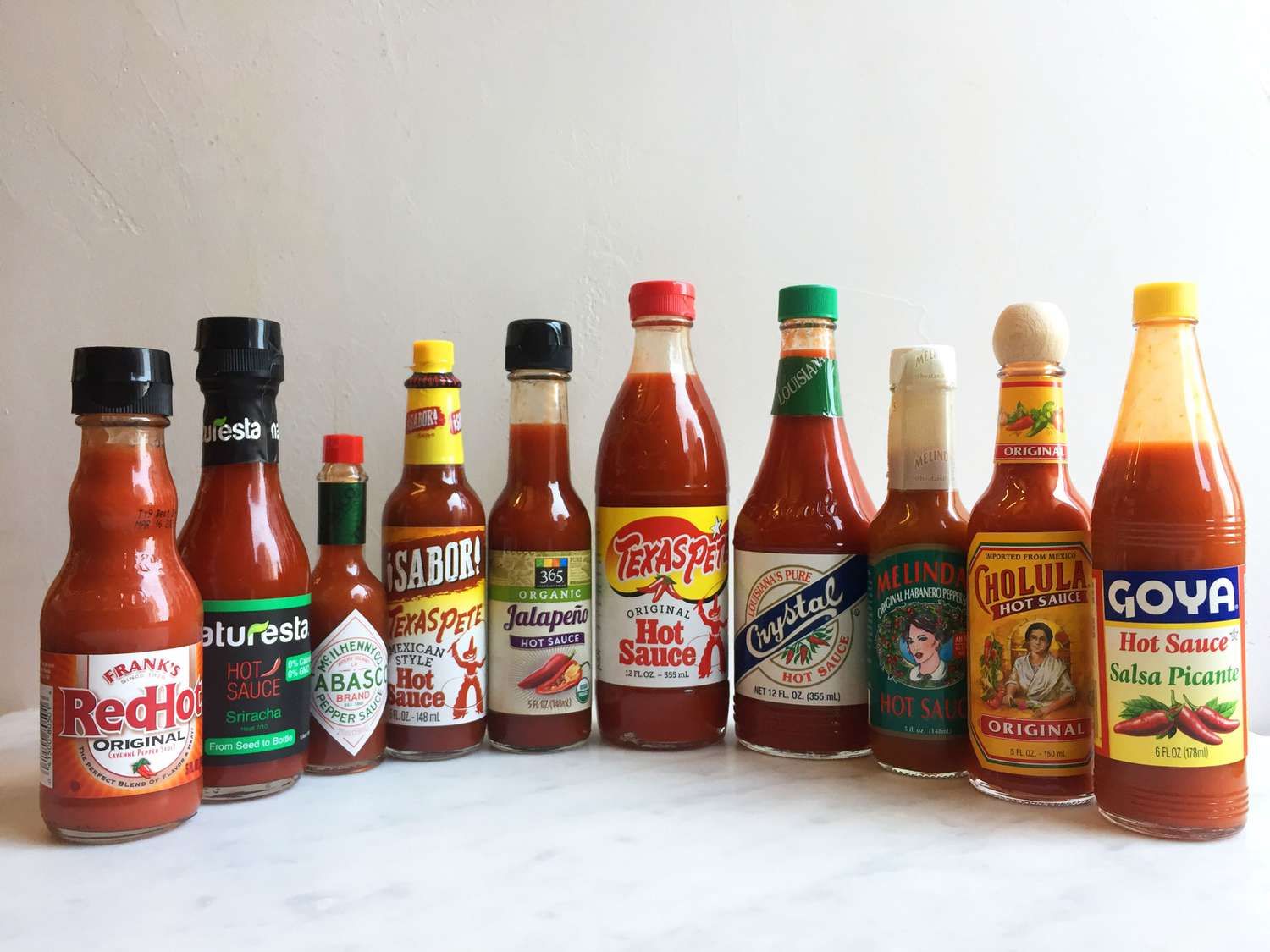

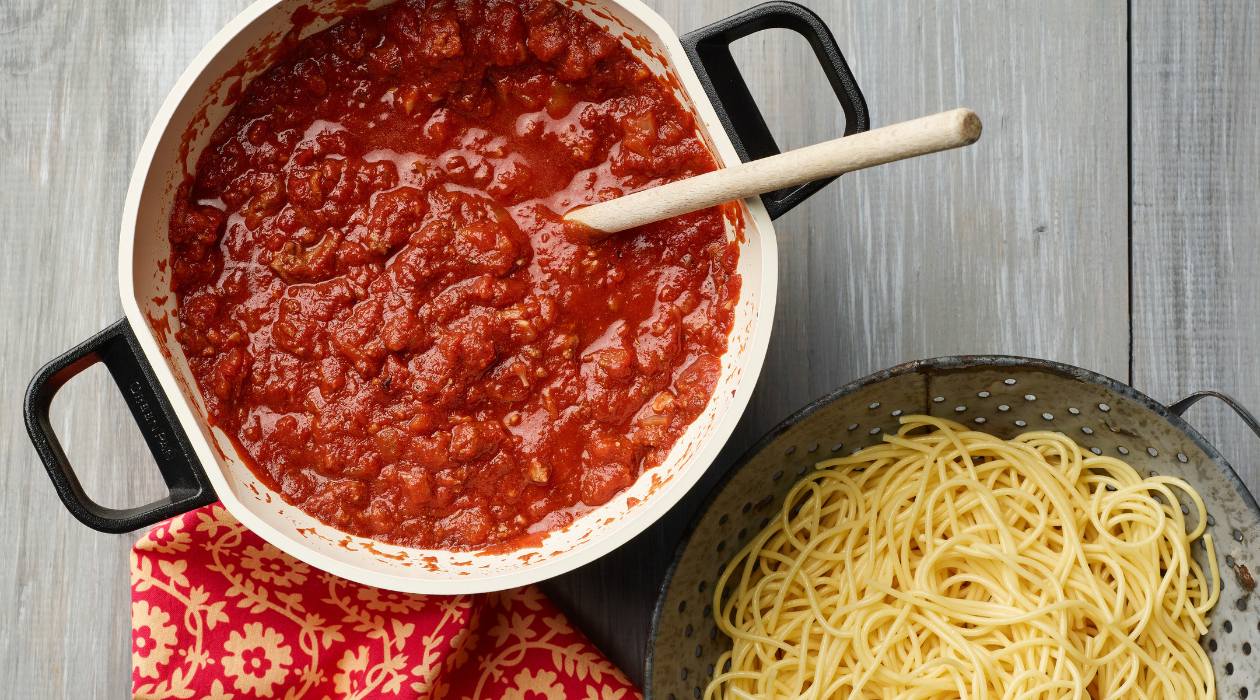

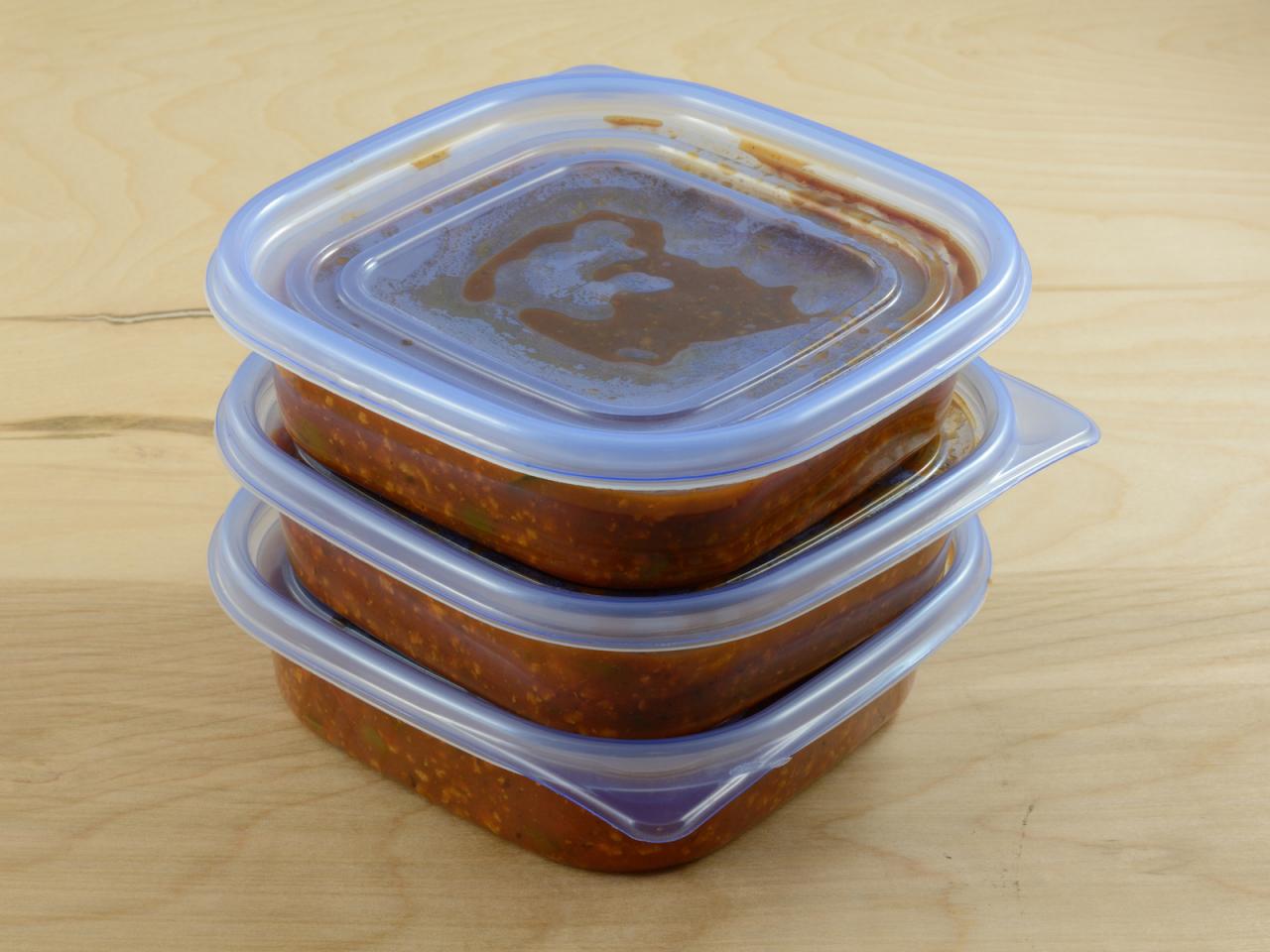
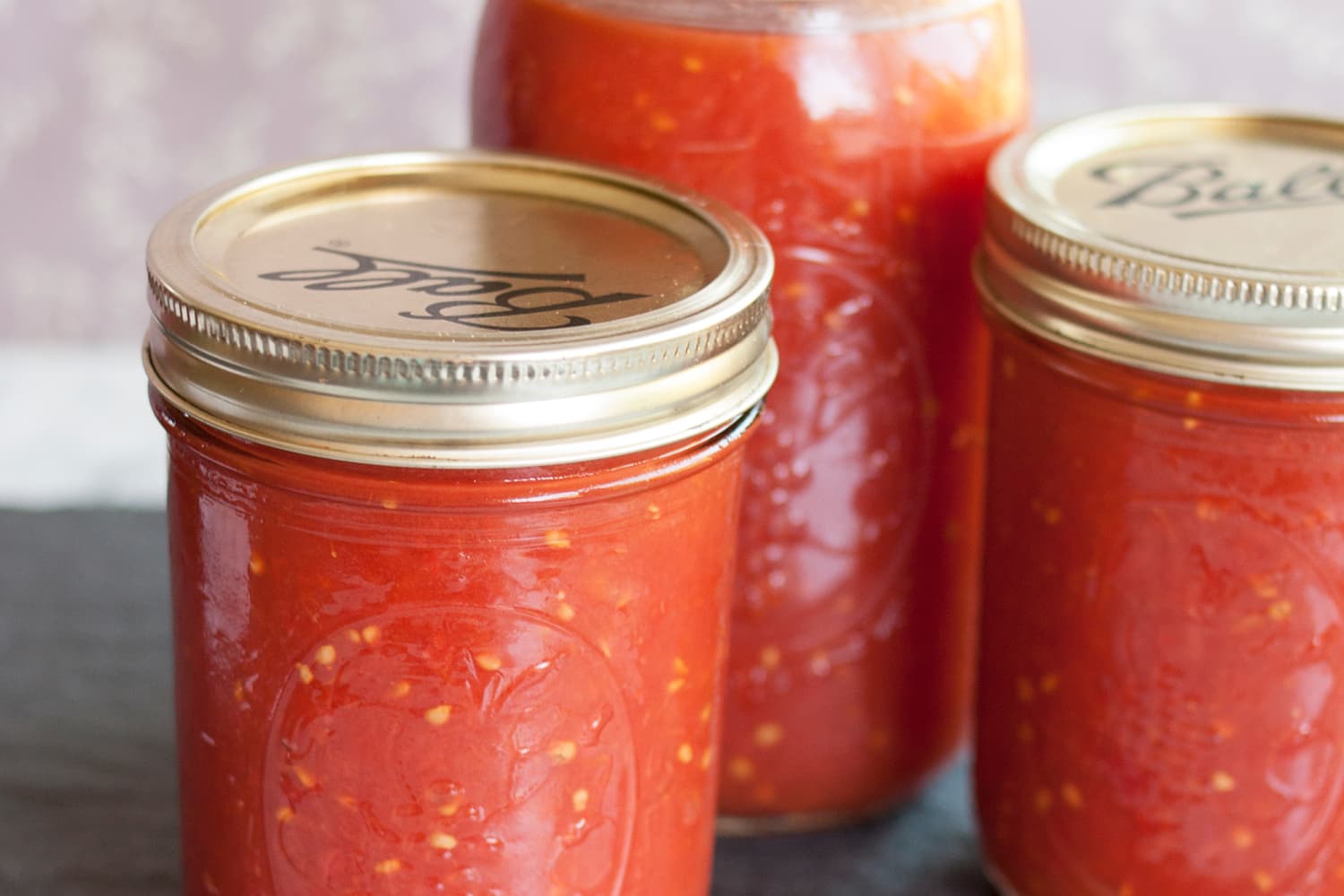

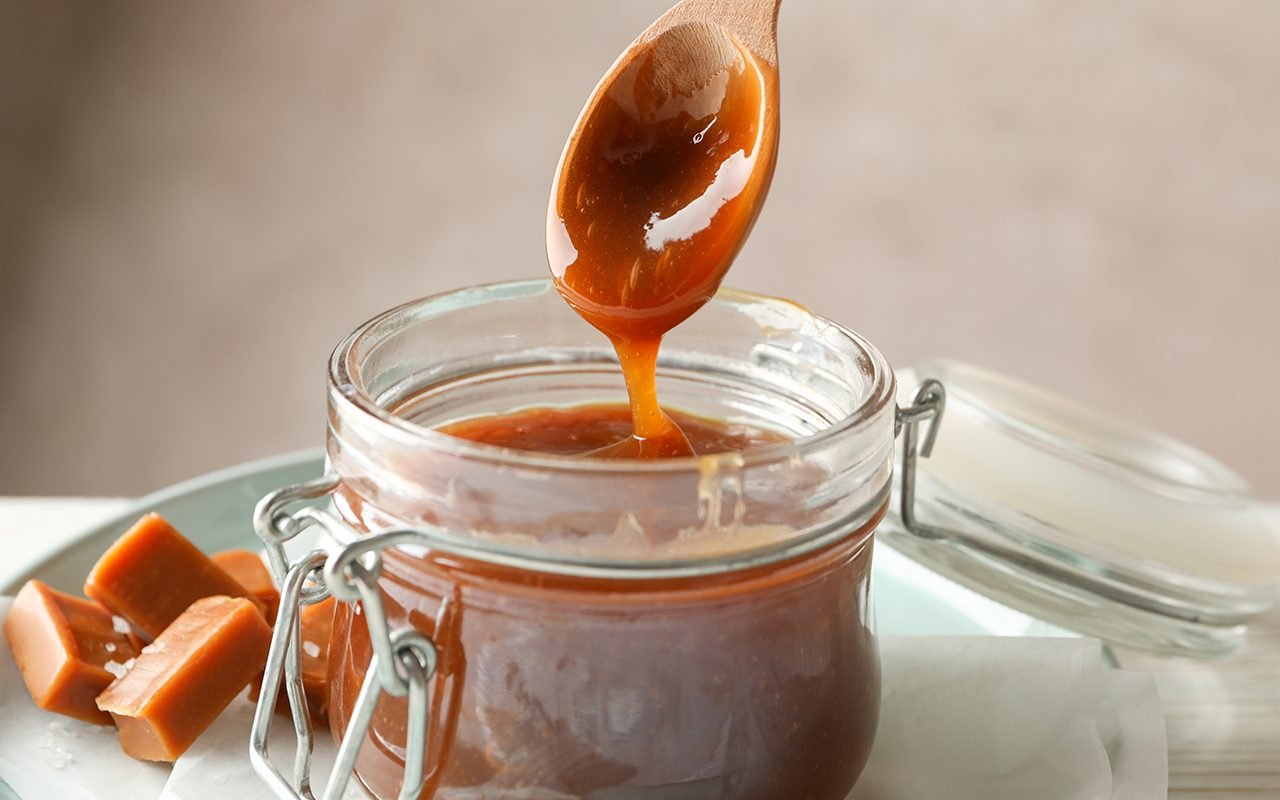
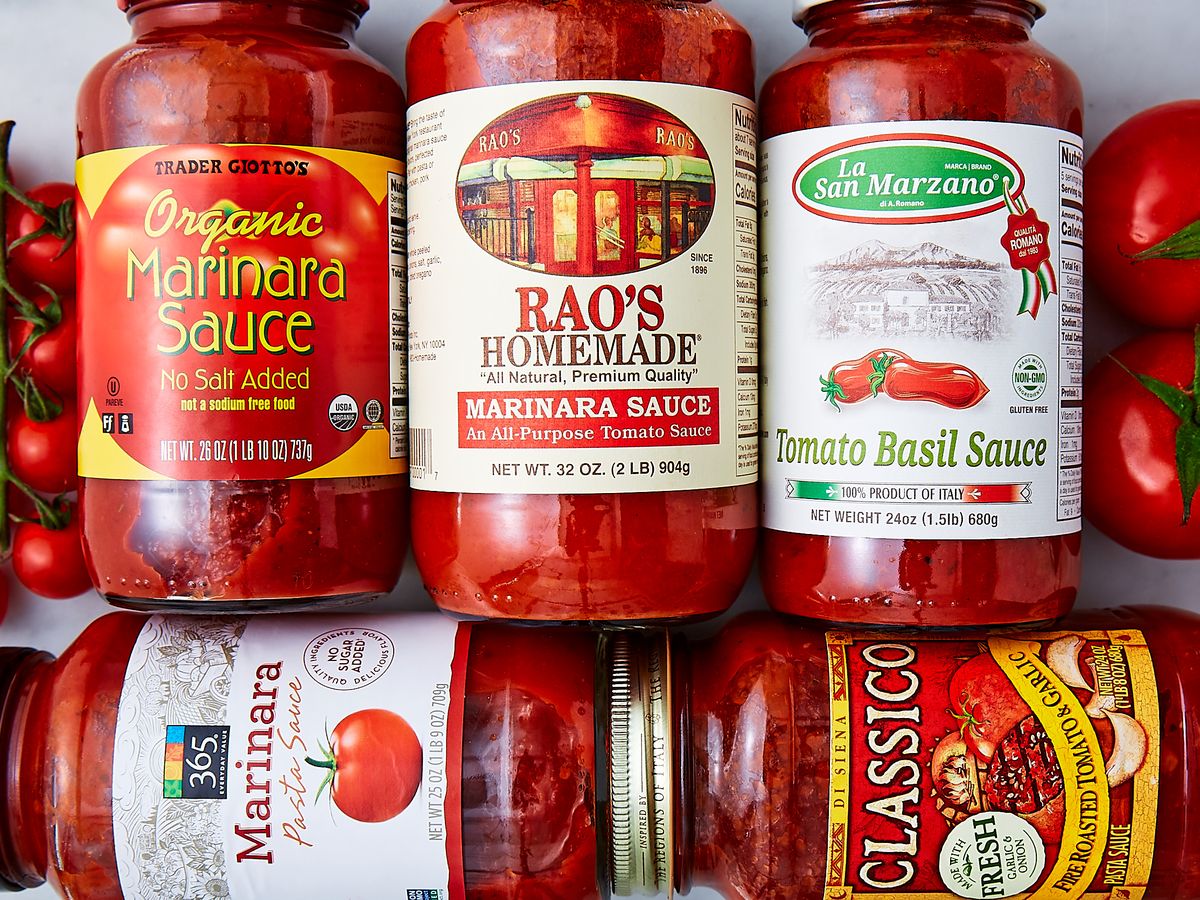
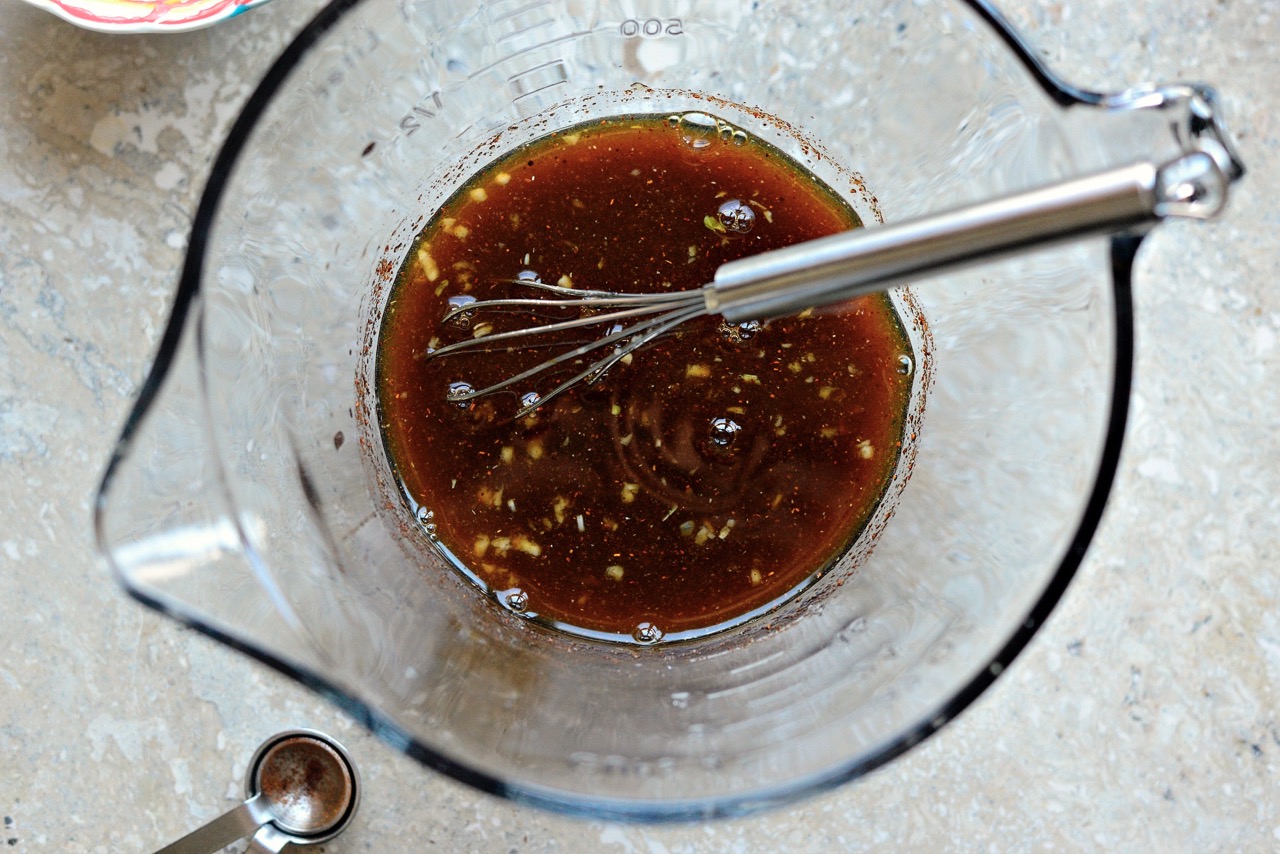
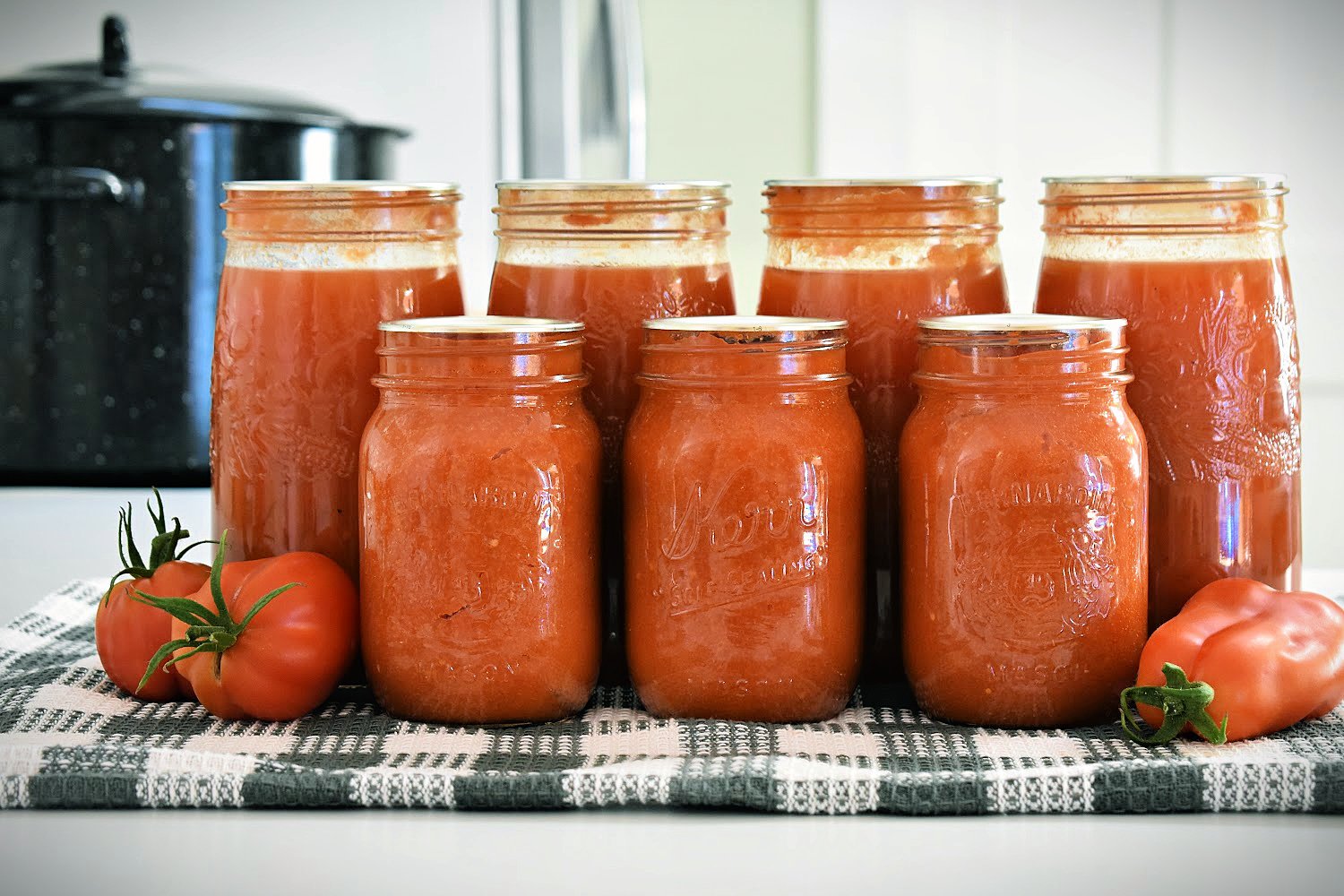


0 thoughts on “How To Store Cheese Sauce”